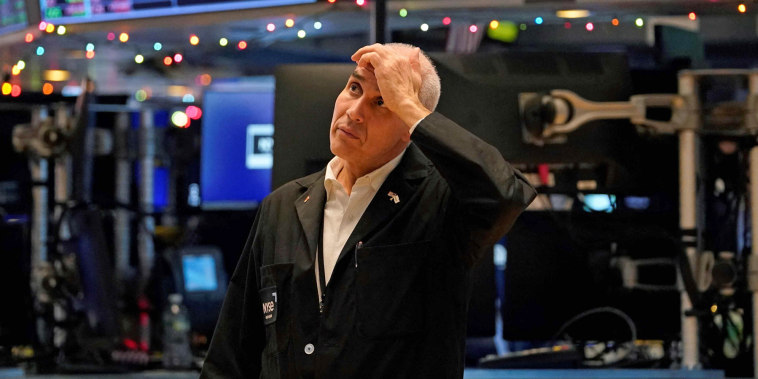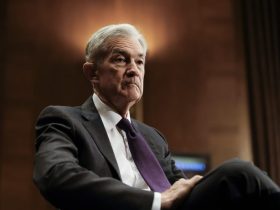Stocks slipped on Friday to end a brutal 2022 with a whimper, as Wall Street wrapped up its worst year since 2008 on a sour note.
The Dow Jones Industrial Average slid 73.55 points, or 0.22%, to close at 33,147.25. The S&P 500 shed 0.25% to end at 3,839.50. The Nasdaq Composite ticked down 0.11% to 10,466.88.
Friday marked the final day of trading in what has been a painful year for stocks. All three of the major averages suffered their worst year since 2008 and snapped a three-year win streak. The Dow fared the best of the indexes in 2022, down about 8.8%. The S&P 500 sank 19.4%, and is more than 20% below its record high, while the tech-heavy Nasdaq tumbled 33.1%.
Sticky inflation and aggressive rate hikes from the Federal Reserve battered growth and technology stocks and weighed on investor sentiment throughout the year. Geopolitical concerns and volatile economic data also kept markets on edge.
“We’ve had everything from Covid problems in China to the invasion of Ukraine. They’ve all been very serious. But for investors, it is what the Fed is doing,” said Art Cashin, director of floor operations for UBS, on CNBC’s “The Exchange.”
A trader reacts on the floor of the New York Stock Exchange at the closing bell on Dec. 30, 2022 in New York. Timothy A. Clary / AFP – Getty Images
As the calendar turns to a new year, some investors think the pain is far from over. They expect the bear market to persist until a recession hits or the Fed pivots. Some also project stocks will hit new lows before rebounding in the second half of 2023.
“I would love to tell you that it is going to be like the ‘Wizard of Oz’ and everything is going to be in glorious color in a moment or two. I think we may have a bumpy first quarter, and depending on the Fed it may last a little longer than that,” Cashin said.
Despite the yearly losses, the Dow and S&P 500 did break three-quarter losing streaks. The tech-heavy Nasdaq, however, muddled through its fourth consecutive negative quarter for the first time since 2001. All three averages are negative for December, however.
Communication services was the worst performing sector in the S&P 500 this year, falling more than 40%, followed by consumer discretionary. Energy was the only sector to rise, climbing nearly 60%.
— Gabriel Cortes contributed reporting








